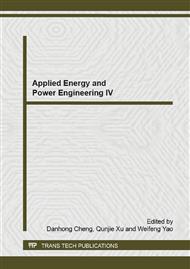p.1206
p.1210
p.1216
p.1222
p.1228
p.1234
p.1241
p.1246
p.1253
A Complete Decoupling PI Control of UPQC in α-β Coordinate System
Abstract:
Aiming at the existing strong coupling problem of UPQC model in synchronous rotating coordinate system, in order to realize the control process easily and accomplish the complete decoupling, two-phase coordinate system α-β was introduced to the complete decoupling PI control of voltage and current compensation unit. According to the corresponding mathematical model, the topology map of voltage and current compensation unit was gained. Direct single closed-loop control method was used, meantime, parameter was set and the structure chart of PI control unit was designed. Finally, the effectiveness and feasibility of the control method is proved by Matlab/Smulink simulation and hardware experiment.
Info:
Periodical:
Pages:
1228-1233
Citation:
Online since:
December 2014
Authors:
Price:
Сopyright:
© 2015 Trans Tech Publications Ltd. All Rights Reserved
Share:
Citation:


